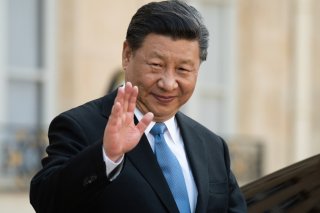China in the Middle East: An Irresponsible Power?
Beijing’s reputation may suffer if it continues to appear as an opportunistic bystander in the Middle East, failing to engage constructively and contribute to regional stability.
Furthermore, China’s diplomatic influence in the Middle East has been constrained by its primarily economic-focused approach and a reluctance to engage in broader diplomatic endeavors. Unlike other external powers, China has prioritized maintaining positive relations with all Middle Eastern countries. More impartially, Beijing also looks to position itself as the champion of the Global South and present a more attractive and alternative vision to the U.S.-led world order. By distancing itself from U.S. and European rhetoric and initiatives, Beijing aims to differentiate itself as an authentically non-Western voice. President Xi Jinping has promised to “contribute Chinese wisdom to promoting peace and tranquility in the Middle East” and has unveiled a raft of corresponding security and development initiatives in recent years. In reality, however, China’s actions and initiatives in the Middle East are driven partly by a desire to challenge U.S. power.
China’s response to the turmoil in the Middle East illustrates a familiar pattern: prioritizing its interests and reaping benefits while avoiding direct involvement and the associated reputational risks. Its approach involves nurturing political and economic ties while avoiding crises, intervening only when its economic interests are significantly jeopardized and when diplomatic success seems achievable in a short timeframe. This behavior stems from geopolitical, economic, and military considerations. However, it raises questions about China’s adherence to the principle of “with great power comes great responsibility.” Middle Eastern countries may rightfully criticize China for its opportunistic approach and urge it to shoulder some responsibility for securing trade routes and resolving conflicts in the region, actions that would also serve China’s interests. In the long run, China’s reputation may suffer if it continues to appear as a non-responsible global power and an opportunistic bystander in the Middle East, failing to engage constructively and contribute to regional stability.
Dr. Mordechai Chaziza is a senior lecturer at the Department of Politics and Governance and the Multidisciplinary Studies in Social Science division at Ashkelon Academic College (Israel) and a Research Fellow at the Asian Studies Department, University of Haifa, specializing in Chinese foreign and strategic relations.

